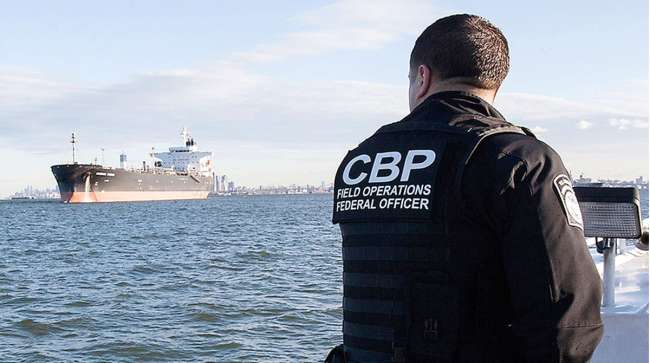Staff Reporter
Customs and Border Protection to Test New Supply Chain Identifiers for Imports

[Stay on top of transportation news: Get TTNews in your inbox.]
The Office of Trade at U.S. Customs and Border Protection is launching a testing project for a global business identifier to streamline tracking of goods in supply chains.
CBP will collaborate with 13 partner government agencies to deploy a Global Business Identifier (GBI) pilot program testing the use of one or more new business identifiers to track imports.
“The complexity of modern, global supply chains requires innovative solutions to increase transparency,” said AnnMarie Highsmith, executive assistant commissioner of the CBP’s Office of Trade. “Our hope for this pilot program is that it will give us a more complete picture of goods making their way into the U.S. so that we can focus enforcement efforts on high-risk shipments while ensuring the free flow of legal trade that supports our economy.”
Last year, CBP processed over 28.5 million cargo containers at 328 U.S. ports of entry and 32.8 million import entries. There were over 365,000 importers of record and 16,500 customs brokers in CBP’s systems.
On Dec. 2, Highsmith announced the project, which aims to revamp trade processes by evaluating unique business identifiers or a combination of identifiers to replace a decades-old manufacturer/shipper identification number used today to track customs information on imports.
The current process only includes an importer’s name and address without being tied to a unique identifier.
“With the GBI pilot, we expect improved data quality, industry cost and time savings, streamlined supply chain tracking and increased protection from counterfeiting — wins for both the trade community and the U.S. government,” Highsmith said.
The testing will involve trade industry volunteers as individuals or customs brokers who provide CBP with entity identifier codes to allow CBP to obtain more comprehensive insight and data on shippers, sellers and manufacturers.
The experiment requires volunteers to submit to CBP three new entity identifier systems along with the manufacturer/shipper identification number. The entity identifiers to be evaluated are:
- Data Universal Numbering System: Nine-digit numeric and nonindicative system identifying unique business within a library of more than 200 reference data elements. Over 300 million have been issued worldwide.
- Global Location Number: 13-digit numeric identifier with reference data elements customizable to location, function and operations. Over 2 million companies use GS1 Standards while 100 million products carry GS1 bar codes.
- Legal Entity Identifier — 20-digit, alphanumeric identifier with underlying reference data elements unique to a legal entity. Over 2.2 million have been issued worldwide.
Using results of the testing, CBP noted it will decide which identifier system is best for capturing critical data including the main legal entity, specific business locations and supply chain roles.
Consideration will be given to using a single new identifier system or combination of them as well if a new system would provide a “single window” to reduce paper processing, expedite the release of cargo and improve the traceability of supply chains.
CBP stated that a new system will offer many supply chain benefits such as streamlining import data collection, providing businesses with a global digital identity and bolster protection against counterfeiting.
The testing period runs from Dec. 19 to July 21, 2023. During this time, CBP will accept volunteer requests from importers of record and licensed customs brokers to participate as well as public comments on the test. Further information is available in a five-page CBP notice in Federal Register Document No. 2022-26213.
Want more news? Listen to today's daily briefing below or go here for more info:


